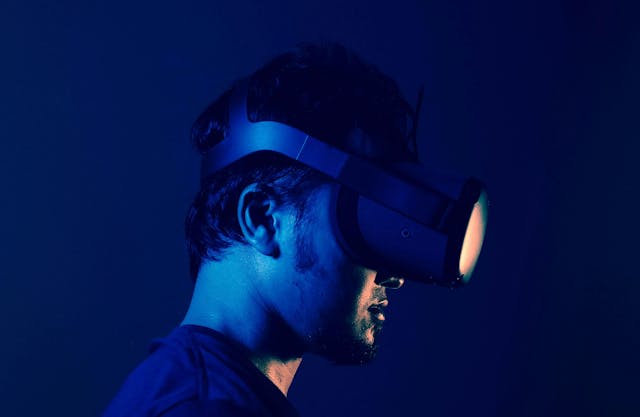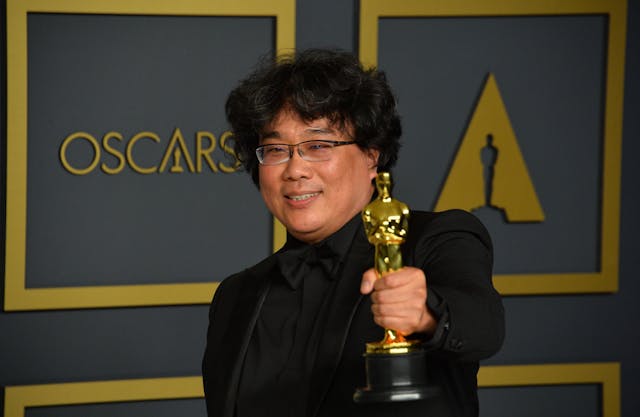How AI Tools Will Revolutionize the Filmmaking Industry: 5 Predictions and Insights

As the filmmaking industry stands on the cusp of an AI revolution, we've gathered insights from five industry experts including producers and directors. They share their predictions from how AI transforms traditional filmmaking to revolutionizing post-production efficiency. Dive into the future of cinema as we explore the innovative ways AI tools will be integrated into the art of storytelling.
- Transforms Traditional Filmmaking
- Democratizes Creative Processes
- Assists in Scriptwriting and Storytelling
- Models Replace Voice Actors
- Revolutionizes Post-Production Efficiency
Transforms Traditional Filmmaking
Tools like OpenAI's Sora, and others that may follow, have the potential to entirely eliminate the need for traditional film production resources. In the future, the art of filmmaking might come down to who can skillfully guide these generative tools to create the most captivating cinematic content.
Beyond significantly reducing the need for production staff, AI will enable screenwriters to draft and revise scripts more quickly and allow VFX artists to produce graphics in far less time than traditional methods demand. Administrative tasks, such as payroll processing and budget reconciliation, will also almost certainly find automated solutions through AI.
Michael Shafia, Producer, Cinedyne Films Inc

Democratizes Creative Processes
AI has already streamlined many of the processes that I use daily for filmmaking, whether it's removing background noise or music from dialogue or transcribing audio for subtitles. Currently, AI is useful for what I'd consider 'utility' purposes, but my prediction for the future of AI would begin to include more use within the context of actual creativity.
This could prove useful for creating environments, such as cityscapes or outdoor locations, without the need for dedicated visual effects artists, accelerating the process and reducing costs. The downside to something like this would be removing the human quality that makes content more relatable and engaging.
I think the only thing that's currently holding back the industry from more heavy use of AI is the limit of tools that are currently available to users. I think, as AI becomes more 'democratized', and independent filmmakers are able to achieve visuals once only obtained by top-tier movie studios, that will change.
Very reflective of how the industry changed once digital filmmaking became more available and closer in quality to feature films. I think the industry will change probably quicker than we imagine, and in 10 years, we will see the result of its impact, and then we will know whether it was positive or negative, and my bet is somewhere in the middle.
Jon Merkel, Film Director
Assists in Scriptwriting and Storytelling
I foresee the filmmaking industry leveraging AI tools to revolutionize scriptwriting and storytelling. By analyzing audience preferences and successful narrative structures, AI can assist in crafting compelling stories that resonate more deeply with viewers. This could significantly reduce the time from concept to screenplay, allowing creators to focus more on the artistic aspects of filmmaking.
Ryan Doser, Co-Founder, AI Insider Tips

Models Replace Voice Actors
They are going to use AI to model the voices of actors, which means that animations with highly-paid, famous voice actors will become a thing of the past.
Marc Bromhall, Founder, StorageBuddy
Revolutionizes Post-Production Efficiency
I often gaze towards the horizon, pondering how advancements like AI will shape various industries, including filmmaking. The potential for AI to revolutionize this creative sector is immense, offering exciting prospects for the future:
Post-Production Enhancements: In post-production, AI could offer unprecedented efficiency and creativity. From editing to color grading, AI tools could analyze raw footage and make preliminary edits, suggest color palettes, or even automatically apply specified styles based on the director’s vision. This would significantly reduce the time spent on technical tasks, allowing filmmakers to focus on the creative aspects of post-production, ensuring that the final product aligns perfectly with their creative vision.
Marc Bishop, Director, Wytlabs
Want to get an email when we publish new content?
Subscribe today



























